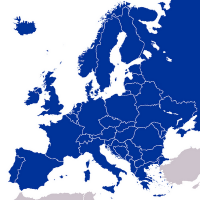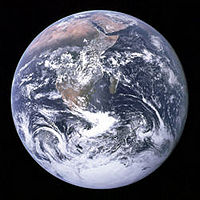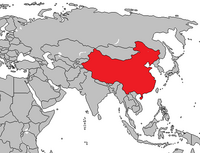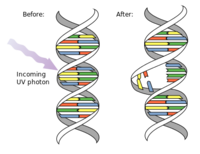Difference between revisions of "Atheism and cancer"
Conservative (Talk | contribs) (→Prominent atheists who had cancer) |
Conservative (Talk | contribs) (→Prominent atheists who had cancer) |
||
| Line 288: | Line 288: | ||
*[[Sigmund Freud]] (Died of oral cancer.<ref>[https://www.ncbi.nlm.nih.gov/pubmed/6360488 The oral cancer of Sigmund Freud], Clinical Plastic Surgery. 1983 Oct;10(4):709-14.]</ref> Freud was a heavy smoker with a 20-cigar/day habit.<ref>[https://www.ncbi.nlm.nih.gov/pubmed/15293843 Sigmund Freud: smoking habit, oral cancer and euthanasia] by Adeyemo WL. ''Nigerian Journal of Medicine'', 2004 Apr-Jun;13(2):189-95.</ref>). | *[[Sigmund Freud]] (Died of oral cancer.<ref>[https://www.ncbi.nlm.nih.gov/pubmed/6360488 The oral cancer of Sigmund Freud], Clinical Plastic Surgery. 1983 Oct;10(4):709-14.]</ref> Freud was a heavy smoker with a 20-cigar/day habit.<ref>[https://www.ncbi.nlm.nih.gov/pubmed/15293843 Sigmund Freud: smoking habit, oral cancer and euthanasia] by Adeyemo WL. ''Nigerian Journal of Medicine'', 2004 Apr-Jun;13(2):189-95.</ref>). | ||
| − | *[[Gordon Stein]] | + | *[[Gordon Stein]] died of cancer after having it for an extended period.<ref>Walter, Nicolas (6 September 1996). "[http://www.independent.co.uk/news/people/obituary--gordon-stein-1362027.html Obituary : Gordon Stein]". The Independent. Retrieved 21 November 2013.</ref> |
*[[Atheism and obesity#George Melly|George Melly]] (Before his death, he was battling cancer and dementia.<ref>[http://www.dailymail.co.uk/health/article-449079/George-Mellys-battle-cancer-dementia.html George Melly's battle with cancer and dementia]</ref> He also had chronic obstructive pulmonary disease.<ref>[http://www.dailymail.co.uk/health/article-449079/George-Mellys-battle-cancer-dementia.html George Melly's battle with cancer and dementia]</ref> He was a smoker.<ref>[http://www.dailymail.co.uk/health/article-449079/George-Mellys-battle-cancer-dementia.html George Melly's battle with cancer and dementia]</ref>). | *[[Atheism and obesity#George Melly|George Melly]] (Before his death, he was battling cancer and dementia.<ref>[http://www.dailymail.co.uk/health/article-449079/George-Mellys-battle-cancer-dementia.html George Melly's battle with cancer and dementia]</ref> He also had chronic obstructive pulmonary disease.<ref>[http://www.dailymail.co.uk/health/article-449079/George-Mellys-battle-cancer-dementia.html George Melly's battle with cancer and dementia]</ref> He was a smoker.<ref>[http://www.dailymail.co.uk/health/article-449079/George-Mellys-battle-cancer-dementia.html George Melly's battle with cancer and dementia]</ref>). | ||
Revision as of 16:13, August 22, 2019

Concerning atheism and health, there is considerable amount of scientific evidence that suggest that theism is more conducive to mental and physical health than atheism (See: Atheism and health).[2]
The atheist population mostly resides in East Asia (particularly China) and in secular Europe/Australia primarily among whites.[3] See also: Atheist population and Western atheism and race
Contents
- 1 Religion/irreligion and cancer treatment
- 2 Secular Europe and cancer
- 3 Atheist controlled mainland China and cancer
- 4 Irreligion, religion, smoking and cancer prevention
- 5 Atheism, alcoholism and cancer
- 6 Atheism, obesity and cancer
- 7 Atheists, cancer and genetics
- 8 Atheism, homosexuality and cancer
- 9 Irreligious regions, cancer rates and aging populations
- 10 Cancer epidemiology in the former Soviet Union
- 11 Cancer and the Chernobyl nuclear reactor accident in the former Soviet Union
- 12 Atheist Christopher Hitchens and cancer
- 13 Finnish study regarding nonbelievers daring God to afflict them with cancer
- 14 Prominent atheists who had cancer
- 15 See also
- 16 References
Religion/irreligion and cancer treatment

See also: Irreligion and recovery from illnesses and Atheism and miracles and Atheism and the supernatural
According to the American Cancer Society:
| “ | According to the US Centers for Disease Control and Prevention (CDC), 69% of cancer patients say they pray for their health. A recent study published in Cancer, a peer-reviewed journal of the American Cancer Society, suggests a link between religious or spiritual beliefs and better physical health reported among patients with cancer.[5] | ” |
The Christian apologist Gary Habermas wrote: "Double-blind prayer experiments: where people pray for others with terminal illness. Habermas admitted that most such experiments have not worked, but the three that he knows of that have indeed worked were cases of orthodox-Christians praying for the sick."[6] See: Studies on prayer
The abstract for the journal article entitled Religious comfort and anxiety in women with cancer: The mediating role of hope and moderating role of religious struggle published in the journal Psychooncology indicates: "Religion appears to protect against developing anxiety because it enhances hope."[7] See also: Atheism and anxiety
Secular Europe and cancer
See also: Europe and cancer and Secular Europe

Europe is more secular/atheistic than many regions of the world (see: Secular Europe). The World Health Organization declares concerning Europe: "Europe comprises only one eighth of the total world population but has around one quarter of the global total of cancer cases with some 3.7 million new patients per year."[9] The Parliament Magazine website indicates about Europe and cancer: "It remains the second leading cause of death in the EU and poses an ever-increasing burden on European societies and health care systems."[10] See also: Europe and cancer
Denmark, France and Australia have significantly higher rates of individuals holding to an atheistic worldview (see also: Irreligion in Denmark and French atheism and Irreligion in Australia). According to the World Cancer Research Fund International, Denmark, France and Australia have the three highest per capita cancer rates in the world.[11]
Most atheists in the world are East Asian (see: Asian atheism). China has the largest atheist population in the world.[12][13]
Atheist controlled mainland China and cancer
The Australian Broadcasting Corporation declared in 2015:
| “ | In China, cancer rates are exploding and for the first time the extent has been revealed.
Last year, more than four million people were diagnosed with the disease and nearly three million died from it, research from the American Cancer Journal of Clinicians showed. In some of the industrial provinces, lung cancer rates have increased a staggering four-fold, but authorities seem reluctant to acknowledge — let alone deal with — the epidemic. The Cancer Institute and Hospital in central Beijing is struggling to cope with ever-increasing caseloads. Every day, hundreds pour in from all over China. People can wait months for a doctor's appointment, but often it is too late for treatment and the cancer is too advanced.[15] |
” |
Science Daily reported in article entitled Nearly half of China cancer deaths attributable to potentially modifiable risk factors:
| “ | A new report finds more than half of all cancer deaths in men in 2013 in China and more than a third of those in women were attributable to a group of potentially modifiable risk factors: smoking, alcohol, nutrition, weight, physical activity, and infections.[16] | ” |
Irreligion, religion, smoking and cancer prevention
See also: Irreligion and smoking

In 2015, according to survey data, 29% of France's population identified as atheists and 63% identified as non-religious.[17]
Tourists visiting France often cite smoking as the first culture shock they experience.[18] A survey by travel website Tripadvisor reported that users found that France was by far the "smokiest" country in the world.[19]
During the French Revolution, smoke filled Paris cafés turned into centers of lively political discussion and activity, often led by members of the Revolutionary clubs.[20][21] See also: French Revolution and atheism
Smoking is a causal factor for various cancers such as lung cancer and cancers of the esophagus, larynx, mouth, throat, kidney, bladder, liver, pancreas, stomach, cervix, colon, and rectum, as well as acute myeloid leukemia.[22][23][24]
The abstract of the 2012 International Journal of Psychiatry in Medicine journal article entitled Religion and smoking: a review of recent literature indicates:
| “ | Tobacco smoking and exposure to secondhand smoke are a major threat to human health worldwide. The effort to prevent tobacco use should be regarded as an important public health strategy. Given the significance of religion and spirituality in the daily life of more than 90% of the world's population, the relationship of religion and smoking should be seen as a critical research area. Religions are many and varied, but most value human well-being highly and so do not approve of tobacco use, even though they do not prohibit it entirely. In recent years, researchers have shown more interest in the subject of religion and health, including drug and tobacco use. Differences of focus and methodology notwithstanding, most studies have ascertained a deterrent role for religion as regards tobacco use, and several mechanisms have been proposed to explain the negative relationship between religion or spirituality and smoking.[25] | ” |
According to Science Daily:
| “ | Young Swiss men who say that they believe in God are less likely to smoke cigarettes or pot or take ecstasy pills than Swiss men of the same age group who describe themselves as atheists. Belief is a protective factor against addictive behaviour. This is the conclusion reached by a study funded by the Swiss National Science Foundation.[26] | ” |
In 2015, according to survey data, 29% of France's population identified as atheists and 63% identified as non-religious.[17] Tourists visiting France often cite smoking as the first culture shock they experience.[27] A survey by travel website Tripadvisor reported that users found that France was by far the "smokiest" country in the world.[28]
Atheism, alcoholism and cancer

See also: Atheism and alcoholism
According to the American Cancer Society:
| “ | Alcohol use has been linked with cancers of the:
Alcohol may also increase the risk of cancers of the pancreas and stomach.[31] |
” |

At least 100 studies suggests religion has a positive effect on preventing alcohol-related problems, researchers Christopher Ellison, Jennifer Barrett and Benjamin Moulton noted in an article in the Journal for the Scientific Study of Religion on “Gender, Marital Status, and Alcohol Behavior: The Neglected Role of Religion.”[33]
Atheists and atheistic cultures often have significant problems with excess alcohol usage (For more information please see: Atheism and alcoholism).
For example, as far as secular Europe, according to the World Health Organization's (WHO) regional office in Europe, "The WHO European Region has the highest proportion in the world of total ill health and premature death due to alcohol.[32] Alcoholism was a serious social problem in the former atheistic Soviet Union.[34] Between 1940 and 1980, this atheist state had the largest increase of the amount of alcohol usage in the developed world.[35]
Atheism, obesity and cancer
See also: Atheism and obesity
According to the National Cancer Institute, "...there is consistent evidence that higher amounts of body fat are associated with increased risks of a number of cancers..."[36]
Secular Europe and obesity

The World Health Organization (WHO) recently reported:
| “ | Based on the latest estimates in European Union countries, overweight affects 30-70% and obesity affects 10-30% of adults.
Estimates of the number of overweight infants and children in the WHO European Region rose steadily from 1990 to 2008. Over 60% of children who are overweight before puberty will be overweight in early adulthood.[38] |
” |
For more information, please see: Secular Europe and obesity
Atheistic China and obesity
China has the largest atheist population in the world.[39] In 2014, the British medical journal Lancet reported that the Chinese have the second highest obesity rate in the world.[40][41]
A recent study published in the Obesity Reviews journal, found that Chinese teenagers' rate of diabetes was four times that of their American peers.[42]
For more information, please see: Atheism and obesity
Irreligion/religion, generations in the United States and obesity
See also: Irreligion/religion, recent generations in the United States and obesity
According to the Gallup Inc., "Very religious Americans are more likely to practice healthy behaviors than those who are moderately religious or nonreligious."[43]
In the United States at the present time, the greater the degree of irreligiosity in a generation, the higher their obesity rate is. For more information, please see the three articles directly below.
Studies on religion and self-control plus diet/exercise and obesity
Two of the major risk factors for becoming obese according to the Mayo Clinic are poor dietary choices and inactivity.[45] In terms of physical activity/athleticism vs. slothfulness, please see: Sports performance: Religious faith vs. atheism and Atheism and hedonism and Atheist nerds
In the journal article Religion, self-regulation, and self-control: Associations, explanations, and implications, psychologists McCullough and Willoughby theorize that many of the positive links of religiousness with health and social behavior may be caused by religion's beneficial influences on self-control/self-regulation.[46] Furthermore, a 2012 Queen's University study published in Psychological Science found that religion replenishes self-control.[47] Also, numerous studies indicate that those who engage in regular spiritual practices have lower mortality rates.[48]
Obesity is positively associated with impulsiveness, lower self-discipline and neuroticism.[44] In addition, many people overeat in response to negative emotions such as depression, anger, anxiety and boredom.[49]
Please see:
Atheists, cancer and genetics
See also: Atheists and genetic mutations and Homosexuality and genetic mutations
Mutations result from errors during the DNA replication process or other types of damage to DNA (such as may be caused by exposure to carcinogens or radiation).
According to the National Cancer Institute:
| “ | Cancer is a genetic disease—that is, cancer is caused by certain changes to genes that control the way our cells function, especially how they grow and divide....
Inherited genetic mutations play a major role in about 5 to 10 percent of all cancers. Researchers have associated mutations in specific genes with more than 50 hereditary cancer syndromes, which are disorders that may predispose individuals to developing certain cancers.[50] |
” |
Left-handedness is a good indicator of a high mutational load.[51] People who are left-handed higher incidences of autism and schizophrenia.[52] A study found that atheists are more likely to be left handed (see: Atheists and genetic mutations).
For additional information, please see: Atheism and autism
Atheism, homosexuality and cancer
See also: Atheism and homosexuality
Atheism and homosexuality
The Barna Group found regarding atheism and morality that those who hold to the worldviews of atheism or agnosticism in America were more likely to find homosexuality/bisexuality morally acceptable.[53]
The conservative journalist Peter LaBarbera of Americans for Truth wrote: "Anyone who has researched the subject of homosexuality knows that many of the most staunch advocates of homosexuality are those who hold a decidedly secular outlook."[54]
At the same time, atheistic communist regimes in history historically have often taken a negative view of homosexuality and within Western World atheism, there is a segment of that atheist population which takes a negative view of homosexuality. See: Atheist actions against homosexuals.
Given the many diseases associated with homosexuality, the biblical prohibition against homosexuality is quite arguably one of the many examples where the Bible exhibited knowledge that was ahead of its time.
Homosexuality and cancer
See also: Homosexuality and health and Lesbianism and obesity

Anna Azvolinsky wrote in her article Link Between Sexual Orientation and Cancer:
| “ | While populations are often analyzed by age, sex, and race with respect to cancer risk and cancer outcomes, sexual orientation has previously not been studied as a factor for either cancer incidence or cancer outcome. A study published in the journal Cancer on May 9, 2011 has now specifically examined the cancer survivorship of the gay, lesbian, and bisexual population (DOI: 10.1002/cncr.25950). The study authors found that cancer outcomes differ based on sexual orientation.
While there is a dearth of data on cancer survivorship among gay/lesbian/bisexual populations, it has been suggested that these populations generally engage in behaviors that are associated with greater cancer risk. These risk factors include a higher incidence of obesity and alcohol consumption among the lesbian population and a higher rate of smoking among gay men, lesbians, and bisexuals. Furthermore, recent studies have shown that same-sex sexual contact is linked to a higher incidence of head and neck and anal cancers. However, the question of cancer survivorship with respect to sexual orientation has not been well-studied, since most cancer surveillance studies do not record this statistic.[56] |
” |
In 2017, the Specialty Pharmacy Times, "When combatting viruses such as HIV, several enzymes in the immune system may malfunction and cause cancer-related mutations, according to a new study published by Nature Communications."[57] See also: Homosexuality and AIDS
Anal cancer, secular Europe and male homosexuality
See also: Secular Europe, anal cancer and male homosexuality and Homosexuality and Anal Cancer
According to the medical journal World Journal of Gastroenterology, "Anal cancers (AC) are relatively rare tumors. Their incidence is increasing, particularly among men who have sex with other men due to widespread infection by human papilloma virus."[58]
In 2014, PharmaTimes Online reported: "Some 6,800 new cases of anal cancer are estimated to occur annually in Europe, among which about 75-80% are attributable to HPV types 16 and 18.[59]
Cancer Research UK inidcates: "There were around 1,300 new cases of anal cancer in the UK in 2014, that’s around 4 cases diagnosed every day....Since the early 1990s, anal cancer incidence rates have increased by almost three-fifths (56%) in the UK.[60]
Irreligious regions, cancer rates and aging populations
See also: Global atheism and aging populations

Global atheism is facing significant challenges in terms of aging populations in East Asia and Europe and atheism is expected to shrink in terms of its market share of the world's population (see: Global atheism and aging populations and Desecularization). A primary reason for this is that irreligious populations have sub-replacement levels of fertility (see: Atheism and fertility rates).
Diane G. Cope, PhD wrote about cancer rates and an aging population:
| “ | A significant increase in the number of older adults in the United States is projected in the coming decades. Older adults, defined as people aged 65 years and older, possess greater cancer incidence and mortality rates compared to younger people. Approximately 60% of all cancers occur in the older adult population, resulting in an incidence rate that is 10 to 11 times higher than in the younger population (Ershler, 2003; Yancik & Ries, 2004). The risk of developing cancer is 8%–9% in people age 40–59, with a dramatic increase in risk of 20%–30% in people older than 60 years of age (Malik, 2004). Additionally, cancer mortality rates are higher for older adults, with approximately 70% of all cancer deaths occurring in people older than 65 (Ershler). With the steady growth in the aging population and the higher rates of cancer incidence in this group, healthcare providers need to be cognizant of this substantial public health concern that will be occurring in the near future and begin to focus attention on evidence-based approaches to the treatment and care of the older adult with cancer.[62] | ” |
Cancer epidemiology in the former Soviet Union
The former Soviet Union practiced state atheism.
Epidemiology is the study of the distribution of disease, or other health-related conditions and events in human or animal populations, in order to identify health problems and possible causes.
The abstract for the medical journal article Cancer epidemiology in the former Soviet Union which was published in Epidemiology describes cancer epidemiology in the former Soviet Union thusly:
| “ | Cancer epidemiologists have spent most of the last 35 years "correcting" the serious inconsistencies in reported incidence data, as official cancer statistics are notoriously incomplete and inaccurate. Professional standards of Soviet cancer epidemiologists reflect the prevailing conditions they have worked in, notably, severe censorship, bans on publishing, lack of computers for compilation of data or analysis, loose recordkeeping practices in institutions, restricted access to scientific literature, and limited opportunities for training in biostatistics and epidemiology.[63] | ” |
Cancer and the Chernobyl nuclear reactor accident in the former Soviet Union
- Health effects of the Chernobyl accident: an overview - World Health Organization
Atheist Christopher Hitchens and cancer
See also: Atheism and death and Atheism and life after death

Christopher Hitchens was known for having a history of heavy drinking and chain-smoking.[64][65] Christopher Hitchens was being treated for esophageal cancer which was likely caused by drinking and smoking up until his death on December 15, 2011.[66][67] Despite his esophageal cancer, when asked by interviewer Charlie Rose if in retrospect he would have engaged in heavy drinking and smoking knowing his present cancer condition, Hitchens said he think he would have done things the same.[65] Hitchens also had problems with being overweight during his life (see: Atheism and obesity and New Atheism leadership's problem with excess weight).[68] According to the National Cancer Institute, "obesity is associated with increased risks of cancers of the esophagus."[69]
Matthew C. Nisbet wrote in his article Hitchens and Ebert on Atheism and Dying:
| “ | Christopher Hitchens' column this month in Vanity Fair reflects the best of the writer's intellect and prose. Upon learning of his cancer diagnosis, Hitch writes: "My father had died, and very switftly, too, of cancer of the esophagus. He was 79. I am 61. In whatever kind of 'race' life may be, I have very abruptly become a finalist."
Hitchens dismisses the metaphor of "battling" cancer, instead "You feel swamped with passivity and impotence dissolving like a sugar plump in water."[70] |
” |
Finnish study regarding nonbelievers daring God to afflict them with cancer
See also: Denials that atheists exist and There are no atheists in foxholes
The Medical Press website declared:
| “ | A study in Finland explored how religious and non-religious people responded to the idea of God.
The researchers used electrodes to measure how much sweat people produced while reading statements like "I dare God to make my parents drown" or "I dare God to make me die of cancer". Unexpectedly, when nonbelievers read the statements, they produced as much sweat as believers—suggesting they were equally anxious about the consequences of their dares.[71] |
” |
Prominent atheists who had cancer
See also: Prominent atheists who had cancer
- Christopher Hitchens (Died of esophageal cancer likely caused by drinking and smoking up until his death.[74][75])
- Leonid Brezhnev (Jaw cancer, but died of a heart attack[76])
- Sigmund Freud (Died of oral cancer.[77] Freud was a heavy smoker with a 20-cigar/day habit.[78]).
- Gordon Stein died of cancer after having it for an extended period.[79]
- George Melly (Before his death, he was battling cancer and dementia.[80] He also had chronic obstructive pulmonary disease.[81] He was a smoker.[82]).
Speculation that Friedrich Nietzsche's madness was caused by cancer
See also: Cause of Friedrich Nietzsche's insanity and Friedrich Nietzsche
- 'Madness' of Nietzsche was cancer not syphilis, The Telegraph, May 2003
See also
- Atheists and genetic mutations
- Atheism and life expectancy
- Atheism and Alzheimer's disease
- The Bible and health
References
- ↑ World Health Organization - Cancer statistics for Europe
- ↑ Multiple references:
- Religion, Spirituality, and Health: The Research and Clinical Implications by Harold G. Koenig, ISRN Psychiatry. 2012; 2012: 278730.
- Mueller, Dr. Paul S. et al. (December 2001). "Religious involvement, spirituality, and medicine: implications for clinical practice". Mayo Clinic Proceedings vol. 76:12, pp. 1225-1235. Retrieved from Mayo Clinic Proceedings website on July 20, 2014.
- "Research library". Duke University Center for Spirituality, Theology and Health. Retrieved on July 24, 2014.
- McCullough, Michael E. et al. (2000). "Religious involvement and mortality: a meta-analytic review". Health Psychology. vol. 19:3. pp. 211-222. Retrieved from University of Miami, College of Arts and Sciences, Department of Psychology website on July 24, 2014.
- Casey, Professor Patricia (April 3, 2009). "The psycho-social benefits of religious practise" [executive summary]. Iona Institute for Religion and Society [Ireland] website. Retrieved on July 24, 2014.
- McCullough, Michael E. and Willoughby, Brian L. B. (2009). "Religion, self-regulation, and self-control: associations, explanations, and implications". Psychological Bulletin, vol. 135: 1, pp. 69–93. Retrieved from University of Miami, College of Arts and Sciences, Department of Psychology website on July 24, 2014.
- University of Colorado at Boulder (May 17, 1999). "Research shows religion plays a major role in health, longevity". ScienceDaily. Retrieved on July 24, 2014.
- Dervic, Kanita, et al. (December 2004). "Religious affiliation and suicide attempt" [abstract]. The American Journal of Psychiatry, vol. 161:12, pp. 2303-8. Abstract retrieved from National Institutes of Health, U.S. National Library of Medicine, National Center for Biotechnology Information, Pub Med on July 24, 2014.
- University of Warwick (December 2003). "Psychology researcher [Dr. Stephen Joseph] says spiritual meaning of Christmas brings more happiness than materialism". Scienceblog. Retrieved on July 24, 2014.
- ↑ A surprising map of where the world’s atheists live, By Max Fisher and Caitlin Dewey, Washington Post, May 23, 2013
- ↑ Christian Apologist: 10 Reasons for the Fall of Atheism by Stoyan Zaimov, Christian Post, October 14, 2013
- ↑ Study: Cancer Patients with Strong Religious or Spiritual Beliefs Report Better Health, American Cancer Society
- ↑ Christian Apologist: 10 Reasons for the Fall of Atheism by Gary Habermas
- ↑ Religious comfort and anxiety in women with cancer: The mediating role of hope and moderating role of religious struggle by Zarzycka B, Śliwak J, Krok D, Ciszek P., Psychooncology. 2019 Jun 19. doi: 10.1002/pon.5155.
- ↑ Time to launch a European Cancer Plan, The Parliament Magazine, 2019
- ↑ World Health Organization - Cancer statistics for Europe
- ↑ Time to launch a European Cancer Plan, The Parliament Magazine, 2019
- ↑ Data for cancer frequency by country, World Cancer Research Fund International
- ↑ Top 50 Countries With Highest Proportion of Atheists / Agnostics (Zuckerman, 2005)
- ↑ A surprising map of where the world’s atheists live, Washington Post By Max Fisher and Caitlin Dewey May 23, 2013
- ↑ China's cancer rates exploding, more than 4 million people diagnosed in 2015, study says, Australian Broadcasting Corporation
- ↑ China's cancer rates exploding, more than 4 million people diagnosed in 2015, study says, Australian Broadcasting Corporation
- ↑ Nearly half of China cancer deaths attributable to potentially modifiable risk factors, Science Daily, 2017
- ↑ 17.0 17.1 Template:Fr La carte de l’athéisme dans le monde : la France numéro 4, L'Obs, 2015
- ↑ The French and smoking: Is France really 'Europe's chimney'
- ↑ The French and smoking: Is France really 'Europe's chimney'
- ↑ Fierro, Alfred (1996). Histoire et dictionnaire de Paris. Robert Laffont. p. 743. ISBN 2-221-07862-4.
- ↑ French revolution in cafe society
- ↑ Smoking cessation fact sheet, National Cancer Institute
- ↑ [https://www.cdc.gov/tobacco/campaign/tips/diseases/cancer.html CDCTips From Former Smokers ®Diseases/Conditions Featured in the Campaign Smoking and Cancer], Centers For Disease Control and Prevention
- ↑ How smoking causes cancer, Cancer Research, UK
- ↑ [Religion and smoking: a review of recent literature.] by Garrusi B1, Nakhaee N., International Journal of Psychiatry in Medicine , 2012;43(3):279-92.
- ↑ Schweizerischer Nationalfonds zur Foerderung der wissenschaftlichen Forschung [Swiss National Science Foundation] (October 3, 2013). "Believers consume fewer drugs than atheists". Science Daily website/Science News. Retrieved on May 23, 2015.
- ↑ The French and smoking: Is France really 'Europe's chimney'
- ↑ The French and smoking: Is France really 'Europe's chimney'
- ↑ Hazardous alcohol drinking in the former Soviet Union: a cross-sectional study of eight countries
- ↑ Alcoholism in the Soviet Union
- ↑ Cancers linked to alcohol use
- ↑ 32.0 32.1 "Data and statistics" (September 2014 or bef.). Health topics/Disease prevention/Alcohol use. World Health Organization (WHO)/Regional office for Europe
- ↑ The Doubled-Edged Sword of Religion and Alcoholism
- ↑ Hazardous alcohol drinking in the former Soviet Union: a cross-sectional study of eight countries
- ↑ Alcoholism in the Soviet Union
- ↑ Obesity and Cancer, National Cancer Institute
- ↑ British girls are FATTEST in western Europe claims alarming new research by The Lancet, Mirror, Ben Burrows, May 29, 2014 10:52
- ↑ World Health Organization - Regional Office for Europe - The challenge of obesity - quick statistics
- ↑
- Top 50 Countries With Highest Proportion of Atheists / Agnostics (Zuckerman, 2005)
- A surprising map of where the world’s atheists live, Washington Post By Max Fisher and Caitlin Dewey May 23, 2013
- ↑ As Obesity Rises, Chinese Kids Are Almost as Fat as Americans, Wall Street Journal Chinarealtime, May 29, 2014
- ↑ Chubby China: Nation of 300 Million Overweight People
- ↑ Obesity is a growing concern in China By Pang Li, China.org.cn, September 14, 2012
- ↑ Newport, Frank, et al. (December 23, 2010). "Very religious Americans lead healthier lives". Gallup [polling] website. Retrieved on May 23, 2015.
- ↑ 44.0 44.1 Multiple references:
- Elfhag, Kristina and Morey, Lesley C. (August 2008). Abstract of "Personality traits and eating behavior in the obese: Poor self-control in emotional and external eating but personality assets in restrained eating". Eating Behaviors, vol. 9, iss. 3, pp. 285-93. Abstract retrieved from National Institutes of Health, U.S. National Library of Medicine, National Center for Biotechnology Information, PubMed.gov on May 23, 2015.
- Konttinen, H., et al. (August 2009). Abstract of "Eating styles, self-control and obesity indicators. The moderating role of obesity status and dieting history on restrained eating". Appetite, vol. 53, no. 1, pp. 131-4. Abstract retrieved from National Institutes of Health, U.S. National Library of Medicine, National Center for Biotechnology Information, PubMed.gov on May 23, 2015.
- "Childhood obesity research" (October 2014 or bef.) Wellspring Camps. Retrieved on May 23, 2015.
- ↑ Mayo Clinic Staff (May 13, 2014). "Causes [of obesity]". Mayo Clinic website/Diseases and Conditions/Obesity/Basics. Retrieved on May 23, 2015.
- ↑ Multiple references:
- McCullough, Michael E. and Willoughby, Brian L. B. (2009). "Religion, self-regulation, and self-control: associations, explanations, and implications". Psychological Bulletin, vol. 135: 1, pp. 69–93. Retrieved from University of Miami, College of Arts and Sciences, Department of Psychology website on July 24, 2014.
- Alternate source of abstract: "Religion, self-regulation, and self-control: associations, explanations, and implications" [abstract]. Retrieved from PubMed.gov on September 10, 2014.
- ↑ Multiple references:
- Rounding, Kevin and Lee, Albert et al. [Queen’s University] (June 2012). "Religion replenishes self-control" [abstract]. Psychological Science, vol. 23, no. 6, pp. 635-642. Retrieved from Sage Journals on September 13, 2014. Purchase required for full article.
- Craig, Anne (January 24, 2012). "Queen's study finds religion helps us gain self-control". Queen's University website [Canada]. Retrieved from EurekAlert on September 13, 2014.
- ↑ Multiple references:
- McCullough, Michael E. et al. (2000). "Religious involvement and mortality: a meta-analytic review". Health Psychology. vol. 19:3. pp. 211-222. Retrieved from University of Miami, College of Arts and Sciences, Department of Psychology website on July 24, 2014.
- Puchalski, Christina M. (October 2001). "The role of spirituality in health care". Proceedings of the Baylor University Medical Center, vol. 14, no. 4, pp. 352–357. Retrieved from National Institutes of Health, U.S. National Library of Medicine, National Center for Biotechnology Information, PubMed Central website on May 23, 2015.
- ↑ Multiple references:
- Zeeck, Almut, et al. (September–October 2011). "Emotion and eating in binge eating disorder and obesity". European Eating Disorder Review, vol. 19, no. 5, pp. 426-37. Retrieved from National Institutes of Health, U.S. National Library of Medicine, National Center for Biotechnology Information, PubMed.gov on May 23, 2015.
- "Food and you" (August 2010 or bef.). Obesitypsychiatry.com. Retrieved on May 23, 2015.
- Tanofsky-Kraff, Marian, Ph. D. (April 2007). "Validation of the emotional eating scale adapted for use in children and adolescents (EES-C)". International Journal of Eating Disorders, vol. 40, no. 3, pp. 232-40. Retrieved from National Institutes of Health, U.S. National Library of Medicine, National Center for Biotechnology Information, PubMed.gov on May 23, 2015.
- ↑ The Genetics of Cancer, National Cancer Institute
- ↑ RELIGIOUS PEOPLE LIVE HEALTHIER, LONGER LIVES—WHILE ATHEISTS COLLECT MUTANT GENES, Newsweek, 2017
- ↑ [Atheists are more likely to be left handed, study finds], The Telegraph, 2017
- ↑ http://www.barna.org/barna-update/article/5-barna-update/58-practical-outcomes-replace-biblical-principles-as-the-moral-standard
- ↑ Atheism and homosexuality
- ↑ Overweight and Obesity in Sexual-Minority Women: Evidence From Population-Based Data, Ulrike Boehmer, Deborah J. Bowen, Greta R. Bauer, American Journal of Public Health, 2007 Jun;97(6):1134-40. E pub 2007 Apr 26.
- ↑ [Link Between Sexual Orientation and Cancer] by Anna Azvolinsky, Cancer Network
- ↑ Fighting HIV, Other Viruses Could Trigger Cancer Mutations, Specialty Pharmacy Times, 2017
- ↑ Anal cancer treatment: Current status and future perspectives, World J Gastroenterol. 2015 Feb 28; 21(8): 2294–2302.
- ↑ Gardasil approved in Europe to prevent anal cancer, PharmaTimes Online, June 2014
- ↑ Anal cancer statistics, Cancer Research UK
- ↑ Global Study: Atheists in Decline, Only 1.8% of World Population by 2020
- ↑ Cancer and the Aging Population by Diane G. Cope, PhD
- ↑ Cancer epidemiology in the former Soviet Union, Epidemiology. 1992 Sep;3(5):464-70.
- ↑ http://www.counterpunch.org/mccarthy02212003.html
- ↑ 65.0 65.1 Christopher Hitchens: Despite Cancer, I'd Drink & Smoke Again
- ↑ http://ac360.blogs.cnn.com/2010/08/07/video-extended-interview-hitchens-on-cancer-and-atheism/
- ↑ Why did Hitchens continue to smoke & drink during treatment? -CTV News
- ↑ Picture of an overweight Christopher Hitchens smoking a cigarette
- ↑ National Institute of Health - Obesity and Cancer Risk
- ↑ Hitchens and Ebert on Atheism and Dying by Matthew C. Nisbet
- ↑ Religion may alter your psychology, even if you're a non-believer, Medical Press, 2017
- ↑ http://www.u-s-history.com/pages/h1883.html
- ↑ Death and state funeral of Leonid Brezhnev, Wikipedia
- ↑ http://ac360.blogs.cnn.com/2010/08/07/video-extended-interview-hitchens-on-cancer-and-atheism/
- ↑ Why did Hitchens continue to smoke & drink during treatment? -CTV News
- ↑ Death and state funeral of Leonid Brezhnev, Wikipedia
- ↑ The oral cancer of Sigmund Freud, Clinical Plastic Surgery. 1983 Oct;10(4):709-14.]
- ↑ Sigmund Freud: smoking habit, oral cancer and euthanasia by Adeyemo WL. Nigerian Journal of Medicine, 2004 Apr-Jun;13(2):189-95.
- ↑ Walter, Nicolas (6 September 1996). "Obituary : Gordon Stein". The Independent. Retrieved 21 November 2013.
- ↑ George Melly's battle with cancer and dementia
- ↑ George Melly's battle with cancer and dementia
- ↑ George Melly's battle with cancer and dementia
- ↑ Dorothy Milne Murdock - Obituary



